The Scandinavian countries are often viewed as a model for successful socialism. They seem to combine a generous welfare system with a strong economy.

But are they really socialist, or just examples of “cuddly capitalism”? And in particular, is Norway considered a socialist country?
Is Norway really socialist?
There are many different factors that influence which direction a particular country leans towards.
We can look at how its economy is structured, whether it has a welfare state or not and, of course, the make-up of its government.
And these things don’t always point in the same direction. For example, a country can have a left-leaning government, but a fully capitalist economy.
And, of course the make-up of a government can change far more quickly that the complete structure of a country’s economy.
Is Norway a democratic socialist country?
Well, if you look at the current government of Norway then: yes it is.
Norway’s ruling party is the left-of-centre social democratic Labour party. Led by Jonas Gahr Stoere, the party came to power in October 2021 after eight years of conservative rule in Norway.
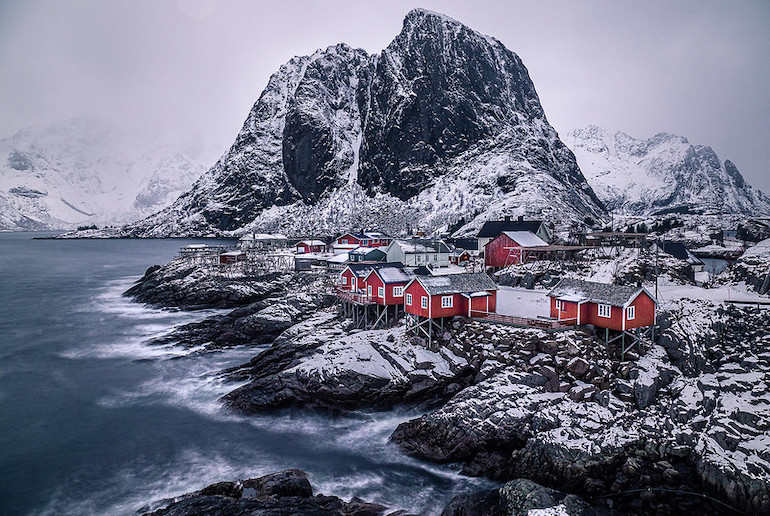
However, the party did not achieve an outright majority, and it now governs as a coalition with the centrist party, led by Trygve Slagsvold Vedum, who currently serves as the finance minister in the coalition government.
Does Norway have a socialist government?
This is trickier to answer since the socialist ruling party’s policies are tempered by the need for support from its more centrist coalition partner.
Moreover, even with the support of the centre party, Norway is still ruled by a minority government, so needs the support of other parties in the parliament to get its laws passed.
In addition, the leader Jonas Gahr Stoere is a millionaire who was formerly associated with the conservative party, so many commentators feel that Norway’s government may well be on course to take a more centrist direction than a socialist one.
On the other hand, many of Norway’s smaller opposition parties are left-leaning so may be prepared to support the government in some cases.
When did Norway become a socialist country?
Norway’s reputation as socialist party stems from the 1970s to 1990s, when most of the Nordic nations adopted a socialist path.
For much of this period Norway had socialist governments, though there were a few years during the 1980s when the conservatives were in power.
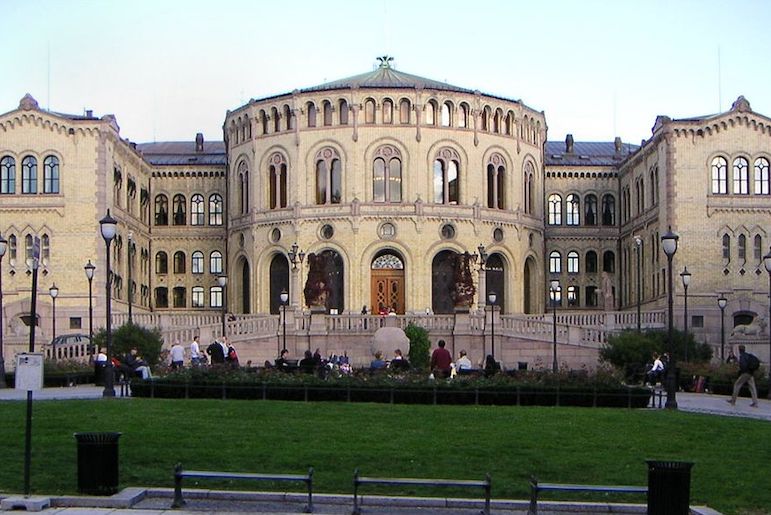
In the last couple of decades, however, the conservatives and Christian democrats have dominated Norway’s political scene.
During this period, more right-wing issues such as immigration controls, business-friendly policies and some privatisation of the welfare state have been raised.
Is Norway socialist or capitalist?
This is a much-debated point and one that has is no clear answer.
Whilst Norway currently has a socialist government, its economy has many features of a capitalist society.
In a truly socialist society, the government usually owns or has a big stake in many of the country’s industries.
Norway, however, is a free market economy, where private companies are run for profit with few government controls, and they can trade freely and openly on a global basis.
There is no state-mandated minimum wage so individual companies can pay their workers whatever they feel is the market price for the job.
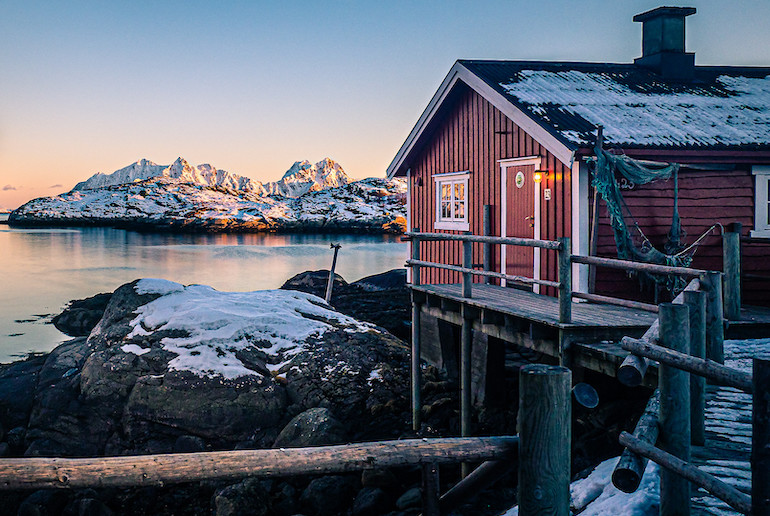
However, Norway does have a very high percentage of union membership among its workforce, giving Norwegian workers in private companies the power to demand better working conditions than those which private businesses may otherwise confer.
In fact, some 60 percent of the Norwegian workforce has some kind of union protection.
Norway also has very high rates of tax, which fund a large state-run welfare sector.
This means that Norwegian citizens have access to free universal healthcare and education, though they are free to use private providers if they prefer.
And some 30 percent of the Norwegian workforce are employed by the state.
Unlike most capitalist countries, Norway also has a state-owned energy company.
The Norwegian government is a major stake-holder in Equinor, owning around 67 percent of the company, though it’s run and trades as an independent private business.
Norway also owns the world’s largest sovereign wealth fund, which invests in private companies, but uses the profits to fund state projects – a true capitalist/socialist hybrid!
What is Norway’s sovereign wealth fund?
Norway’s sovereign wealth fund is an investment fund for the surplus revenues from the country’s oil industry.
Once Norway began to extract North Sea oil in 1970s, it realised that it could become very wealthy from the profits.
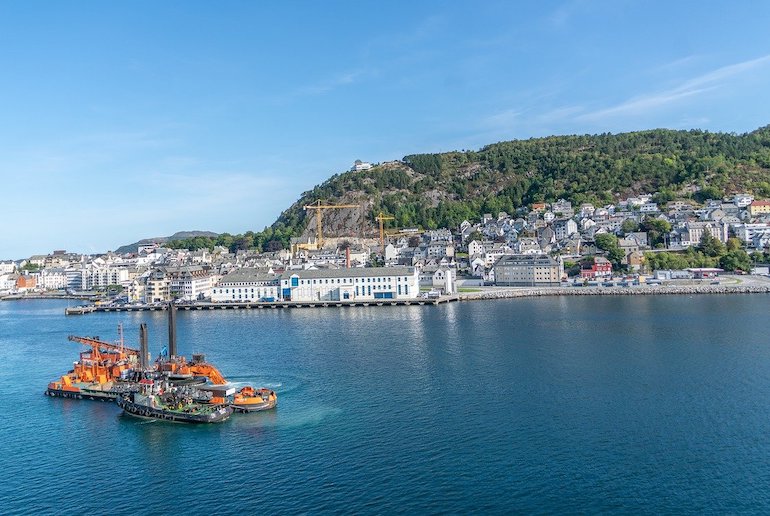
Unlike countries such as the UK, which sold off the rights to drill its share of North Sea oil to private companies, Norway set up the Government Petroleum Fund in 1990 to fund future pensions and a welfare state for the Norwegian people.
Now the world’s largest sovereign wealth fund, Norway’s Government Pension Fund Global is worth some US$1.3 trillion – around US$250,000 for every resident of Norway – and funds pensions for Norwegian citizens as well as investing in infrastructure projects and the welfare state.
How good is Norway’s socialist government?
Norways’ current socialist government has only been in power for around six months, so it’s too early to really judge its progress.
Since it’s a minority coalition government, however, it may well have problems getting some of its policies through parliament.
Arguably, its main challenge is to address the elephant in the room, that is the oil and gas industries’ effects on climate change.
Around 40 percent of Norway’s income comes from the exports of oil and gas, which indirectly funds much of the country’s generous welfare state.
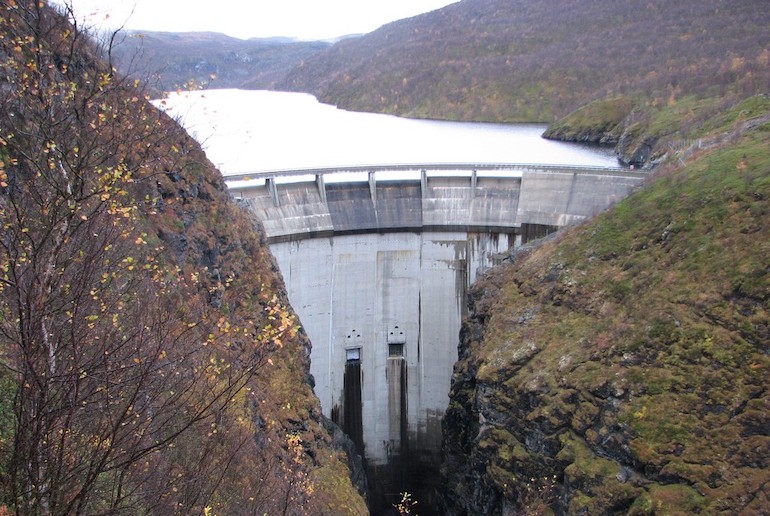
It is true that Norway’s sovereign wealth fund also invests enormous amounts of money in renewable energy projects around the world, but this doesn’t change the fact that its vast wealth is generated through the extraction of fossil fuels.
Norway has tried to address this dilemma by aggressively pursuing green policies.
It is one of the world’s most sustainable countries, with around 99 percent of its energy coming from renewable sources, in particular hydroelectricity – no mean feat for a country with long, cold winters (and lots of frozen water!).
Norway is also a forerunner in environmentally friendly transport, with eco-friendly public transport, and sales of electric cars having overtaken those of new petrol and diesel cars in 2020.
By 2021 sales of electric cars made up more than two thirds of new car sales, making the government’s ambitious target of banning sales of petrol and diesel cars by 2025 look increasingly possible.
So, Norway’s government may well be judged on the issue of how long it can continue to promote and fund renewable energy sources, using the profits from fossil fuels.
See also:
Is Sweden socialist?
The cost of living in Norway
The 30 best things to do in Norway










Their economy relies on oil and gas but still they try their best to use renewable energy which is nice